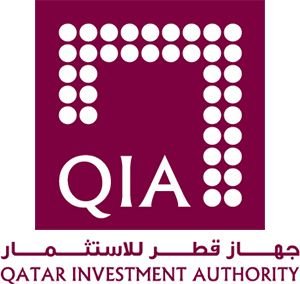Qatar is currently the richest country in the world in terms of Gross National Income (GNI) per capita, according to the World Bank. As of 2021, the GNI per capita in Qatar is estimated to be $116,799, which is significantly higher than the GNI per capita of the next highest-ranked country, Macao SAR, China, which has a GNI per capita of $91,932.
One of the main reasons for Qatar’s high income levels is its vast reserves of oil and natural gas, which have helped to fuel its economic growth over the past few decades. While Qatar is one of the smallest countries among the member states of the OPEC, it has the world’s third-largest proven natural gas reserves and is one of the largest producers of liquefied natural gas (LNG) in the world. In addition, Qatar also has significant oil reserves, which are estimated to equal around 13% of the global supply.
However, it’s worth noting that Qatar has been taking steps to diversify its economy and reduce its dependence on oil and gas in recent years. The country has been investing heavily in sectors such as finance, real estate, and tourism, and has also been promoting entrepreneurship and innovation. These efforts have helped to create new sources of economic growth and job opportunities, which could help to sustain the country’s prosperity in the long run.
Qatar is a small country with a population of around 2.4 million people living in an area of approximately 12,000 square kilometers. As you mentioned, the country’s significant oil and natural gas reserves have helped to make it the richest country in the world in terms of Gross National Income (GNI) per capita.
According to some estimates, oil and gas exports account for around 55% of Qatar’s Gross Domestic Product (GDP). The country’s oil and gas reserves have been a major source of wealth for the Qatari government and have helped to fund a range of infrastructure projects and social programs.
The Qatari royal family, which has been in power since the mid-19th century, is indeed among the richest in the world. However, it’s worth noting that the Qatari government has been working to address issues of income inequality and improve living standards for all citizens, including through investments in education, healthcare, and social services. Additionally, while the Qatari royals may lead luxurious lifestyles, they also have significant responsibilities as leaders of the country and play an important role in shaping Qatar’s political and economic landscape.
Why Qatar has the Highest Per Capita GDP in the world
Qatar has the highest per capita GDP in the world because of the following reasons –
Qatar Investment Authority (QIA)

The QIA was founded in 2005 and has since grown to become one of the world’s largest sovereign wealth funds, with estimated assets under management of around $300 billion as of 2021. The QIA invests in a wide range of asset classes, including public equities, fixed income securities, real estate, infrastructure, private equity, and alternative investments.
The QIA’s investments are spread across the globe, with a focus on developed markets such as the United States, Europe, and Asia. Some of the notable investments made by the QIA in recent years include stakes in companies such as Glencore, Volkswagen, and Barclays, as well as high-profile real estate acquisitions such as the Shard skyscraper in London.
QIA plays an important role in Qatar’s economy by providing a stable source of long-term funding for the country’s development programs, while also generating financial returns that can be used to support public services and infrastructure.
Per Capita GDP
According to the International Monetary Fund (IMF), Qatar has the highest per capita GDP in the world as of 2021, with an estimated value of $126,089. This is significantly higher than the per capita GDP of the next highest-ranked country, which is Macao SAR, China, with a per capita GDP of $120,998.
The main reason for Qatar’s high per capita GDP is its vast reserves of oil and natural gas, which have fueled its economic growth over the past few decades. Qatar is the world’s largest exporter of liquefied natural gas (LNG) and has significant oil reserves as well. The country’s oil and gas sector accounts for a large share of its GDP, exports, and government revenue.
However, it’s worth noting that Qatar has also been diversifying its economy in recent years, investing heavily in non-oil sectors such as finance, real estate, and tourism. This has helped to reduce its dependence on oil and gas and create new sources of economic growth.
Resilience despite trade embargo
The blockade against Qatar by Saudi Arabia, the United Arab Emirates (UAE), Bahrain, and Egypt began on June 5, 2017, and lasted for over three years. The countries accused Qatar of supporting terrorism and having close ties to Iran, which Qatar denied.
As a result of the blockade, these countries cut off diplomatic relations with Qatar and closed their land, sea, and air borders with the country, effectively isolating it from the region. This had a significant impact on Qatar’s economy, particularly in terms of trade and tourism.
However, Qatar responded to the blockade by implementing a series of measures to mitigate its impact, including increasing its domestic production of goods, seeking new trade partners, and investing heavily in infrastructure projects. Qatar also received support from other countries, including Turkey and Iran, which helped to provide alternative trade routes and sources of food and supplies.
Despite the economic impact of the blockade, Qatar’s economy remained resilient, with its GDP continuing to grow and its government maintaining a stable financial position. Qatar has significant reserves of natural gas and has diversified its economy in recent years, which helped to cushion the impact of the blockade.
Overall, the blockade had a significant impact on Qatar’s economy, but the country’s resilience and ability to adapt helped it to weather the storm. Qatar has emerged from the blockade stronger and more self-sufficient, with a renewed focus on diversifying its economy and strengthening its relationships with other countries in the region and beyond.
Becoming self-sufficient
Qatar has made significant efforts over the last century to diversify its economy and become more self-sufficient. The country has invested heavily in infrastructure projects, such as the Hamad Port, which is one of the largest and most advanced ports in the region. The port has helped to boost Qatar’s trade and logistics sector and improve its connectivity with the rest of the world.
In addition, Qatar has also made efforts to achieve self-sufficiency in a range of key sectors, including food production. During the trade embargo, Qatar faced shortages of certain food items, including milk. To address this, the country invested over $700 million in a dairy farm project, which aims to produce enough milk to meet the country’s domestic demand and reduce its reliance on imports.
Qatar has also made significant investments in other sectors, such as finance, real estate, and tourism, in order to diversify its economy and reduce its dependence on oil and gas. The country has established itself as a major player in the global financial industry, with the Qatar Financial Centre attracting a growing number of international firms and investors.
Overall, Qatar’s efforts to diversify its economy and achieve self-sufficiency in key sectors have helped to strengthen its economic resilience and reduce its vulnerability to external shocks.
Please Subscribe Us to get updated with Qatar News, Saudi News, Kuwait News, Health News, UAE News, Iqama, Visa, Jobs, Banking and More.



